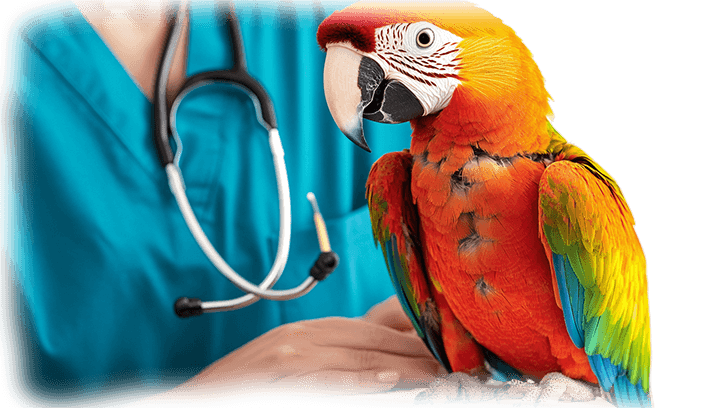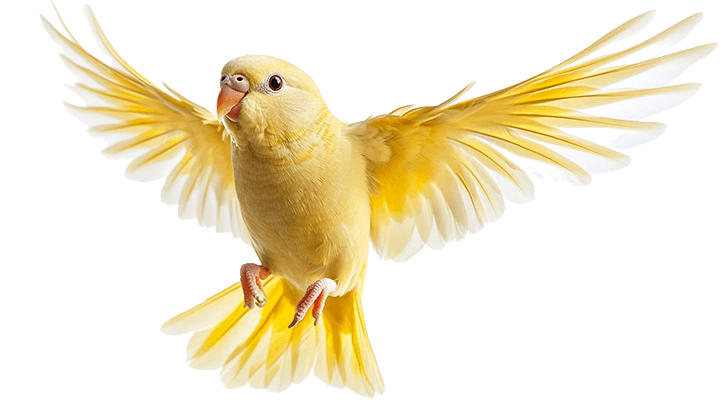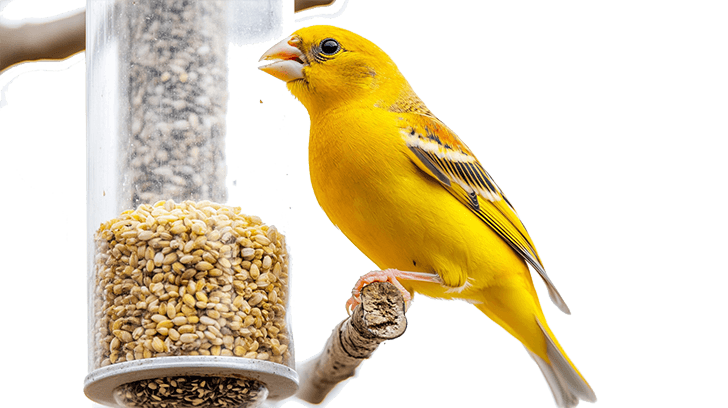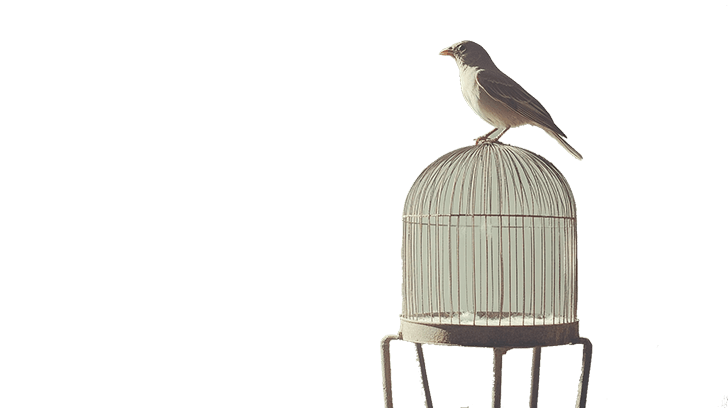Bird Health Guides: Ensuring Your Bird’s Well-being Through Care and Attention
Birds are intelligent and sensitive animals that require specialized care to thrive, especially in captivity. Their health is intricately tied to factors such as environment, diet, and physical activity. Whether you’re caring for a parrot, canary, or budgie, understanding the unique health needs of your bird is crucial. By staying informed about common health challenges and preventive measures, you can ensure your feathered friend leads a healthy and fulfilling life.

Common Bird Health Issues
Birds are prone to several health conditions, many of which can arise from inadequate diet, stress, improper housing, or lack of exercise. Early detection and intervention can make a significant difference in managing these issues, so it’s important to stay vigilant. Here are some of the most common health problems you might encounter.
Respiratory Infections
Birds are particularly susceptible to respiratory issues because of their delicate respiratory systems. Symptoms to watch for include wheezing, nasal discharge, coughing, and labored breathing. Often, these problems are caused by environmental factors such as poor ventilation, irritants like cigarette smoke, or exposure to aerosols. Keeping your bird’s living area clean, well-ventilated, and free from irritants is key to preventing respiratory infections.
Malnutrition
A large number of bird health issues stem from an unbalanced diet. Birds that are fed seed-only diets, for example, often miss out on essential vitamins and minerals, which can lead to serious deficiencies. Malnutrition in birds can manifest as poor feather condition, lethargy, and a weakened immune system. Providing a varied diet that includes fresh fruits, vegetables, and formulated bird pellets ensures they receive the necessary nutrients for overall health.
Feather Plucking
Feather plucking, often a sign of stress or boredom, can escalate into a serious condition that leaves your bird vulnerable to skin infections. This behavior is commonly seen in birds that are not receiving enough mental stimulation, social interaction, or physical exercise. Ensuring that your bird has access to engaging toys, plenty of perches, and opportunities for interaction is essential in preventing feather plucking.
Psittacine Beak and Feather Disease (PBFD)
This viral infection primarily affects parrots but can also be seen in other species. PBFD causes symptoms such as feather loss, abnormal beak growth, and a compromised immune system. There is currently no cure for PBFD, so prevention is crucial. If your bird shows signs of this disease, early diagnosis and supportive care can help manage the condition and improve their quality of life.

Preventive Care for Birds
Preventive care is the cornerstone of maintaining your bird’s health. A balanced diet, regular exercise, mental stimulation, and a clean environment are the foundations of good bird care.
Diet
A well-rounded diet is essential for preventing many of the health problems birds face. Avoid seed-only diets, as they lack important nutrients, and instead provide a variety of fresh fruits, vegetables, and specially formulated bird pellets. Each species may have different dietary needs, so consult your vet to ensure your bird is getting the correct nutrition.

Exercise and Mental Stimulation
Birds are naturally active and curious creatures, so providing them with opportunities for both physical exercise and mental engagement is critical. This can include giving them time outside the cage to stretch their wings, offering a variety of toys to challenge their minds, and ensuring they have plenty of perches and climbing structures. Mental stimulation is particularly important for parrots and other highly intelligent birds, as boredom can lead to destructive behaviors like feather plucking.
Cage Setup
Your bird’s cage should be large enough to allow them to move freely and spread their wings without restriction. A cramped cage can lead to physical and psychological stress, so always choose a cage that matches the size and activity level of your bird. Regular cleaning of the cage is also essential to prevent bacterial growth and the spread of disease. Remove waste daily, clean food and water dishes regularly, and do a thorough cage cleaning at least once a week.
Regular Vet Visits
Birds often hide signs of illness until their condition becomes severe, so regular veterinary check-ups are essential. An annual visit to an avian vet can help catch health issues early, ensuring that any problems are addressed before they become serious. If your bird shows signs of distress or illness, such as changes in behavior or appetite, don’t wait for the next check-up—seek immediate veterinary care.
Breed-Specific Health Issues
Different bird species have unique health challenges based on their genetics and environment. Understanding these breed-specific concerns can help you tailor your care to prevent common problems.
Parrots
Parrots, including African Greys and Macaws, are prone to Psittacine Beak and Feather Disease (PBFD), feather plucking, and obesity. These highly intelligent birds require constant mental stimulation to prevent boredom and stress-related behaviors. Parrots also need a varied diet rich in fresh fruits and vegetables to maintain optimal health.
Canaries
Canaries are delicate birds that can suffer from air sac mite infestations, which affect their respiratory system. Symptoms include coughing, labored breathing, and lethargy. Ensuring their environment is clean and providing a balanced diet can help prevent these issues. Canaries are also prone to obesity if kept on a seed-heavy diet, so incorporating fresh greens into their meals is essential.
Budgies (Parakeets)
Budgies are susceptible to several health issues, including obesity, tumors, and scaly face or leg mites. Regular cage cleaning, a varied diet, and prompt vet visits can help prevent these conditions. Budgies are also social birds, so providing them with companionship and mental stimulation is vital for their well-being.
Cockatiels
Cockatiels are often prone to respiratory infections and feather plucking, especially if their living environment is not properly maintained. These birds can also suffer from vitamin A deficiency, which is why their diet should include fresh vegetables rich in vitamin A, such as carrots and sweet potatoes.
Lovebirds
Lovebirds, while affectionate and lively, are at risk of contracting PBFD, particularly if exposed to infected birds. Ensuring a clean, stress-free environment and providing regular vet care can help reduce the risk. Lovebirds also require a balanced diet to prevent obesity and related health problems.
Finches
Finches are small but active birds that can develop respiratory issues if their cage is not kept clean or if they are exposed to cold environments. Egg binding, a condition where a female finch struggles to lay eggs, is another common issue. This can be prevented with proper diet and care during the breeding season.
Signs Your Bird Needs Medical Attention

Because birds are skilled at hiding their symptoms, it’s important to recognize subtle changes that could indicate a health issue. If your bird displays labored breathing, loss of appetite, lethargy, or changes in their droppings, these could be early signs of illness. Unusual feather loss, discharge from the eyes or nostrils, or a sudden reduction in activity are also red flags that warrant immediate veterinary attention. Early intervention can make a significant difference in treating many bird health problems, so it’s crucial to act quickly if you notice any of these symptoms.
By understanding the unique health needs of your bird and taking proactive measures, you can ensure they live a healthy and happy life. Regular vet visits, a balanced diet, and proper mental and physical stimulation are all essential components of good bird care. Whether you’re caring for a curious parrot or a delicate canary, staying informed about their specific health concerns will allow you to provide the best possible care.
Explore Our Bird Health Guides for Specific Species
Keeping your bird healthy involves regular care, preventive measures, and an understanding of breed-specific issues. Explore our health guides for more detailed information on caring for your feathered friend.

